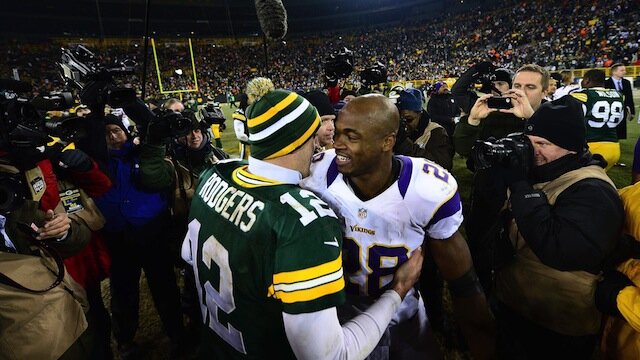Let’s be honest, there is no magic formula or equation on the market right now that has a fool proof 100 percent ability to predict the annual production of NFL players. As much as we scour the Internet to look for such a beast, or write down countless stats over a predetermined number of years trying to identify an exact science for predicting year-to-year production, there simply isn’t a known “magic bullet” available.
That said, there are ways one can use statistics to increase their odds in the proverbial game of luck that is Fantasy Football. And let’s not kid ourselves, luck is a factor. In fact, it is a huge factor of this game, and anyone that denies it is either delusional or misleading you.
That’s important for anyone seeking Fantasy Football advice to understand. Experts in the field certainly have extensive knowledge of strategy and a firm understanding of the laws of Fantasy Football probability, but we are human, we do make mistakes and we all hope luck factors in to the hours of preparation and research we put into preseason prognostications. Much like the absence of a tool that can predict a player’s production with 100 percent accuracy, so too is there an absence of a Fantasy Football “Nostradamus.”
With that said, there are most certainly ways to put yourself in an advantageous position to ensure the odds are in your favor. The old saying dictates that luck is when preparation meets opportunity. In Fantasy Football, success is when opportunity and preparation are assisted by luck.
What does that mean?
Your job is to avoid the hype, rely on valid statistics and at all times, remember this is a game to be played with your head and never your heart.
If you look, there are trends that point to players that have a more likelihood of success than others. The trend could include strength of schedule, additions of new components that have a high probability of bettering a current system or the introduction of a new coaching staff with a resume of offensive success. However, all of these are risky trends if they are not built on the foundation of a player who has a track record of productive consistency.
A 1,200 yard rusher over three years that scores double digit touchdowns every season is a reliable and safe pick. Take Arian Foster, Adrian Peterson, Aaron Rodgers and Drew Brees for instance; their statistics over a three-year period are very similar — you simply know what you get with the four year in and year out.
A player that has an unreliable track record that includes his absence in several games throughout the season is a risky pick no matter his strength of schedule, his signing with a new team or any new changes in coaching staff. Maximize your team’s success rate by selecting players with minimal risk.
That said, risk is a part of winning and playing it completely safe is not always the best strategy during your draft. So risk is necessary, but has to be calculated and well timed.
Using an early pick on a player associated with risk can result in a catastrophic season if he turns out to be a bust. However, spending a later round pick on a player like Cleveland Browns’ wide receiver Josh Gordon, who is considered a risk because of off-field issues and a questionable work ethic, won’t cost your team nearly as badly if he doesn’t work out due to the low cost of a later pick.
On the flip side of risky picks, are value picks. These are probable known qualities whose draft positions are far below the talent level of the athlete. Indianapolis Colts quarterback Andrew Luck is a great example of a value pick. Luck is currently being drafted outside the top 10 of Fantasy Football quarterbacks, however, he has the potential to finish the season as a top-five guy. That is exceptional value.
Value is something you want to look for in the mid-to-later rounds of your league drafts.
In the end, drafting isn’t an exact science and I doubt it ever will be. Or at least I hope it never will be, because the game is all the better for it.
Jim Heath is a Fantasy Football writer for www.RantSports.com. Follow him on Twitter @jim_heath, “Like” him on Facebook or add him to your network on Google









